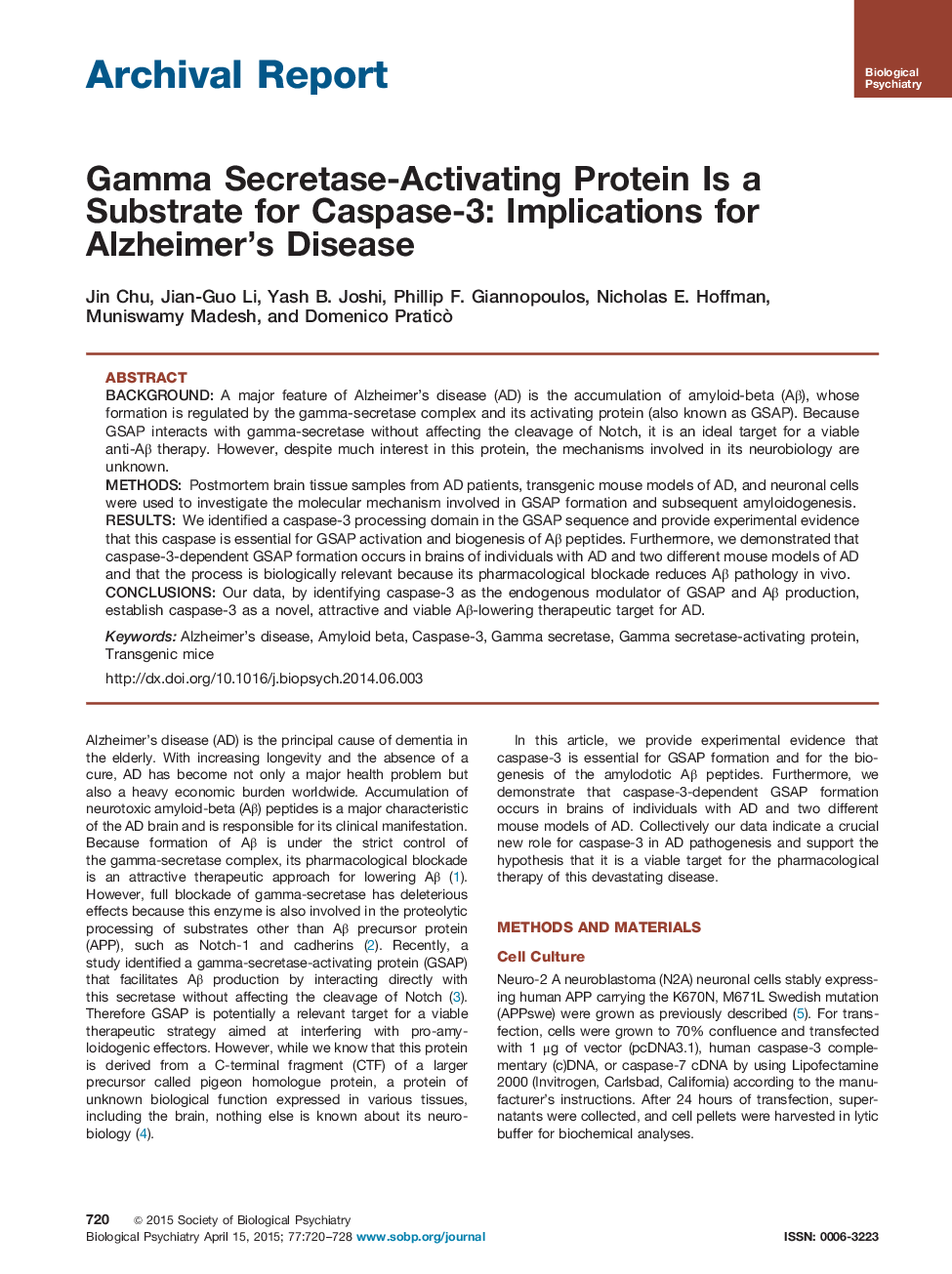| کد مقاله | کد نشریه | سال انتشار | مقاله انگلیسی | نسخه تمام متن |
|---|---|---|---|---|
| 6226767 | 1276403 | 2015 | 9 صفحه PDF | دانلود رایگان |
BackgroundA major feature of Alzheimer's disease (AD) is the accumulation of amyloid-beta (Aβ), whose formation is regulated by the gamma-secretase complex and its activating protein (also known as GSAP). Because GSAP interacts with gamma-secretase without affecting the cleavage of Notch, it is an ideal target for a viable anti-Aβ therapy. However, despite much interest in this protein, the mechanisms involved in its neurobiology are unknown.MethodsPostmortem brain tissue samples from AD patients, transgenic mouse models of AD, and neuronal cells were used to investigate the molecular mechanism involved in GSAP formation and subsequent amyloidogenesis.ResultsWe identified a caspase-3 processing domain in the GSAP sequence and provide experimental evidence that this caspase is essential for GSAP activation and biogenesis of Aβ peptides. Furthermore, we demonstrated that caspase-3-dependent GSAP formation occurs in brains of individuals with AD and two different mouse models of AD and that the process is biologically relevant because its pharmacological blockade reduces Aβ pathology in vivo.ConclusionsOur data, by identifying caspase-3 as the endogenous modulator of GSAP and Aβ production, establish caspase-3 as a novel, attractive and viable Aβ-lowering therapeutic target for AD.
Journal: Biological Psychiatry - Volume 77, Issue 8, 15 April 2015, Pages 720-728
